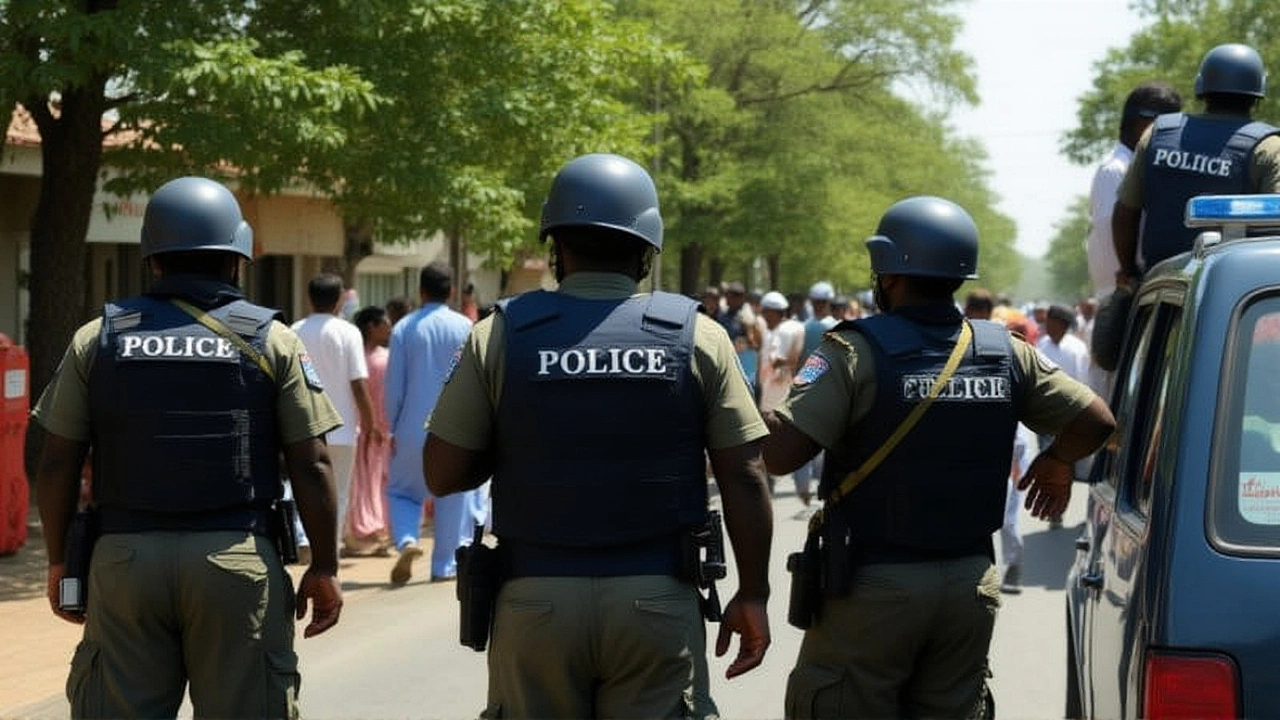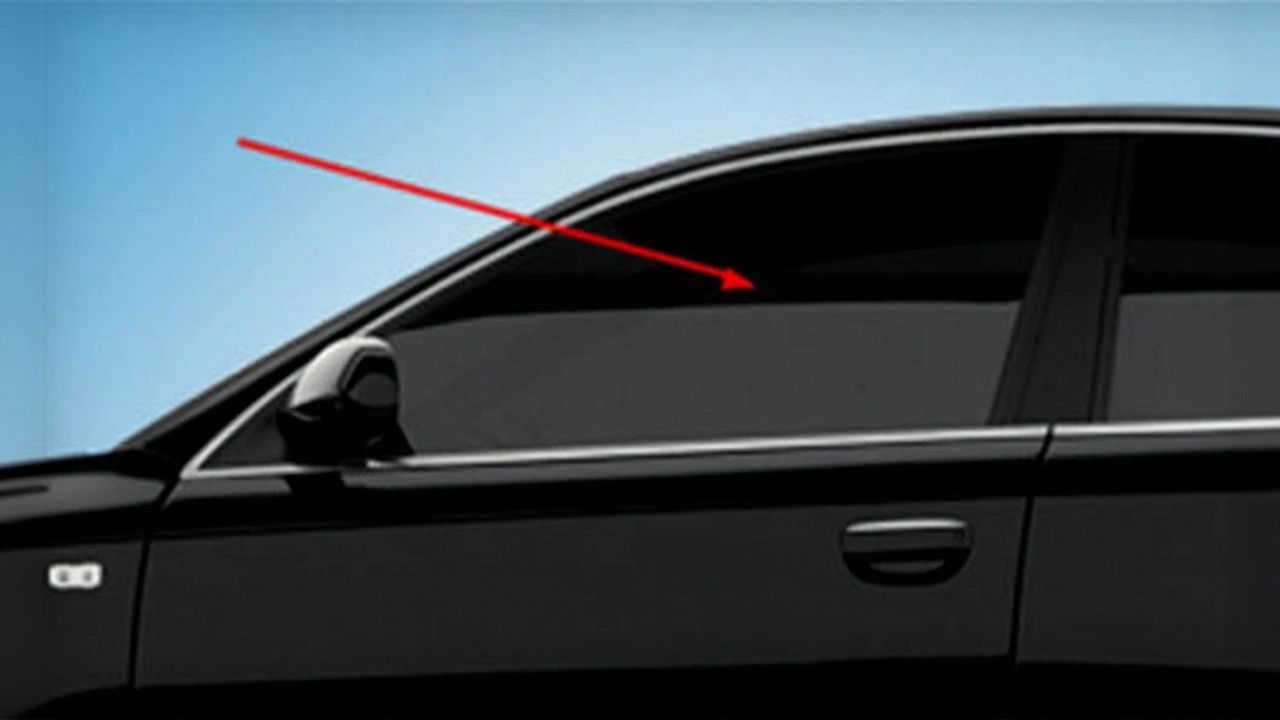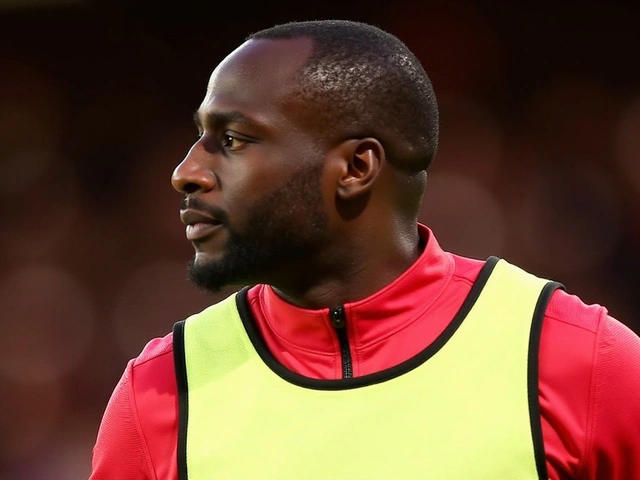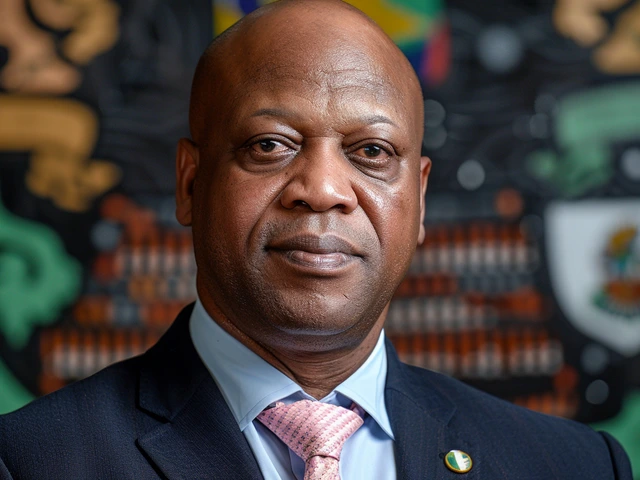Nigeria Court Stops Tinted‑Glass Permit Seizures After 210 Cars

When John Aikpokpo‑Martins, a Lagos‑based lawyer, filed suit FHC/WR/CS/103/2025 against the Nigeria Police Force, a Federal High Court in Warri issued an order on 4 October 2025 halting the seizure of vehicles over the contentious tinted‑glass permit scheme. The ruling came just hours after police in Delta State and Jigawa State had impounded 45 cars, and before a nationwide tally of 210 vehicles could be finalized.
Background: The Tinted‑Glass Permit Programme
The scheme dates back to April 2023 when the Police Specialized Services Automation Project revived a permit requirement that had been suspended in 2022. Motorists must obtain an electronic permit via the portal possap.gov.ng to lawfully install darkened windows. The government argues the rule curbs criminal activities that thrive behind opaque glass, while many citizens see it as an added cost they can barely afford.
Since its re‑introduction, the portal has been plagued by glitches, verification delays, and payment failures. By September 2025, the Federal Government estimated that only 38 % of the 12 million registered vehicles had secured a valid permit, leaving a massive compliance gap.
Legal Battle: Court Injunction Halts Enforcement
John Aikpokpo‑Martins’ lawsuit alleged that the police were acting beyond their statutory powers, contravening the pending challenge filed by the Nigerian Bar Association. The suit demanded that the police cease all seizures until the constitutionality of the programme could be examined.
Senior Advocate of Nigeria Kunle Edun, representing the claimant, told the court that the enforcement "undermines due process and threatens the rule of law". He added that the police’s heavy‑handed approach could set a dangerous precedent for future regulatory actions.
In a brief reading, the court ordered the police to "maintain the status quo" on tinted‑glass permit enforcement, effectively pausing all vehicle impoundments pending a full hearing. The ruling was welcomed with jubilation across social media, with many Nigerians posting celebratory emojis and hashtags like #EndPoliceHarassment.
Police Enforcement and the Vehicle Seizures
While the injunction was being drafted, officers in Delta and Jigawa states continued with the operation. They stopped motorists on major highways, flashing red lights and demanding to see permits on the spot. By the end of 2 October, they had confiscated 45 vehicles—mostly private cars and a handful of commercial vans.
Later, a coordinated sweep across six states, including Lagos, Abuja, Rivers, and Kano, resulted in the seizure of a staggering 210 vehicles, according to unofficial figures gathered by local journalists. The police claimed the seizures were lawful because the offenders had no valid permits, but critics argue the timing was deliberately provocative.
Police Public Relations Officer CSP Benjamin Hundan later said the force had not yet been served with the Warri court order, suggesting a communication lapse rather than outright defiance. "We are reviewing the directive and will comply as soon as it reaches the field units," he told reporters.

Public Reaction: Anger, Support, and the Security Debate
Reactions have been sharply divided. On Twitter, users like @OluchiChukwudi wrote, "They’re seizing my car for a piece of glass! How are we supposed to survive when the government keeps adding fees?" Others, such as @SecurityWatchNG, defended the crackdown, noting a recent surge in kidnappings where criminals used heavily tinted windows to evade identification.
Economic analysts warn that the cost of replacing seized vehicles—averaging ₦2.3 million per car—could exacerbate inflationary pressures already felt by low‑income households. Meanwhile, security experts argue that unchecked tinted windows do pose a genuine threat to law‑enforcement visibility, especially in high‑crime zones like the Niger Delta.
The mixed sentiment underscores a deeper tension: balancing citizens’ everyday hardships with a nation’s urgent need to curb violent crime.
Future Outlook: What Comes After the Injunction?
The Warri judgment is only a temporary stay. The Federal High Court has scheduled a full hearing for 12 December 2025, where both the Nigerian Bar Association and the Ministry of Interior will present detailed arguments.
If the court ultimately upholds the permit system, police are expected to refine their enforcement tactics—perhaps introducing mobile verification units and clearer guidelines for motorists. Conversely, a ruling that strikes down the programme could force the government to rethink its approach to vehicle security, possibly shifting focus to other measures like biometric driver licensing.
In the meantime, motorists are urged to verify their permit status online and keep copies handy when traveling between states. The ongoing debate also spells out a broader question for policymakers: how to design security regulations that are both effective and socially equitable.

Key Facts
- 210 vehicles seized across six states before court injunction.
- 45 vehicles impounded in Delta and Jigawa alone on 2 Oct 2025.
- Federal High Court in Warri halted enforcement on 4 Oct 2025 (case No.FHC/WR/CS/103/2025).
- Only 38 % of Nigeria’s 12 million vehicles hold a valid tinted‑glass permit.
- Average value of a seized private car: ₦2.3 million.
Frequently Asked Questions
What triggered the police to seize so many vehicles?
The police were enforcing the tinted‑glass permit rule that re‑started in April 2023. With the deadline that expired on 2 Oct 2025, officers began stopping cars that lacked a digital permit, leading to the mass impoundments.
How does the court injunction affect motorists now?
The injunction temporarily suspends any further seizures until the court’s full hearing. Motorists who already had their cars taken can still seek release through legal channels, but new stops should cease.
Who benefits from the tinted‑glass permit scheme?
Proponents argue that security agencies gain a tool to identify suspects in crimes like kidnapping. Critics say the scheme mainly benefits permit‑issuing officials and generates revenue, while ordinary drivers bear the cost.
What are the next legal steps?
A full hearing is set for 12 December 2025. Both the Nigerian Bar Association and the Ministry of Interior will present evidence. The court’s final decision will determine whether the permit system stays, is amended, or is struck down.
How can motorists avoid future seizures?
Drivers should apply for a permit through the official portal possap.gov.ng, keep the digital certificate accessible, and verify their status before traveling, especially across state lines where enforcement intensity varies.






Grace Melville
October 6, 2025 AT 19:25Got it, the injunction should give drivers a breather 😊
Ashlynn Barbery
October 6, 2025 AT 19:41It is encouraging to see the judiciary intervene when executive overreach threatens civil liberties. The court’s decision may set a precedent for procedural fairness in regulatory enforcement. One hopes the upcoming hearing will examine both security concerns and the economic impact on ordinary citizens.
Sarah Graham
October 6, 2025 AT 19:58These developments highlight how fragile the balance between safety and affordability can be. Drivers should definitely keep their permit status updated to avoid future hassles.
Jauregui Genoveva
October 6, 2025 AT 20:15Honestly, seizing cars over a piece of glass feels like the police are playing Monopoly with our wallets 😤. If they want safety, they should invest in better patrols, not arbitrary fines.
Quinten Squires
October 6, 2025 AT 20:31The tinted‑glass debate illustrates a classic clash of policy intent and administrative execution. Citizens complain about the cost while authorities cite security imperatives. The portal’s glitches only exacerbate frustrations. When a system fails to process payments it becomes a de‑facto tax. Moreover, the low compliance rate indicates either a lack of awareness or deliberate avoidance. Police raids, though ostensibly lawful, can be perceived as intimidation. Legal scholars argue that due process requires clear guidelines before enforcement. The recent injunction reflects judicial caution. It temporarily halts seizures pending a full review. This pause offers a window for civil society to present evidence. Meanwhile, motorists are left in limbo, uncertain about their legal standing. The government must address the portal’s technical deficiencies. Transparent communication could rebuild public trust. Finally, any lasting solution should balance security needs with affordability for ordinary drivers.
Tyler Manning
October 6, 2025 AT 20:48From a patriotic standpoint, the state has a solemn duty to protect its citizens, and the tinted‑glass mandate is a legitimate tool toward that end. Nonetheless, the manner of its enforcement appears heavy‑handed and inconsistent with the rule of law. The courts are rightly demanding due process before further action.
james patel
October 6, 2025 AT 21:05In terms of regulatory compliance architecture, the current mechanism suffers from low API latency and suboptimal authentication flows, leading to systemic bottlenecks. Stakeholders should consider a federated identity model to streamline permit verification across state jurisdictions.
Scarlett Mirage
October 6, 2025 AT 21:21One must ponder, dear interlocutors, the epistemological ramifications of imposing a visual opacity upon a nation’s vehicular fleet-does not the very act of darkening windows metaphorically veil the transparency of governance itself, thereby engendering a paradox wherein the pursuit of security paradoxically undermines the societal trust it seeks to fortify? Indeed, the policy’s ontological underpinnings appear riddled with contradictions, demanding a more nuanced deliberation!!!
Ian Sepp
October 6, 2025 AT 21:38The injunction provides a temporary safeguard for motorists while legal arguments are thoroughly examined. It also signals that procedural fairness remains a cornerstone of our judicial system.
Dennis Lohmann
October 6, 2025 AT 21:55Glad to see the court stepping in-this should give everyone a chance to sort out their permits without fear of sudden seizures 😊
Jensen Santillan
October 6, 2025 AT 22:11The extensive commentary by Quinten raises several points about systemic inefficiencies that merit deeper quantitative analysis. In particular, the correlation between portal latency and seizure rates could be modeled using regression techniques. A data‑driven approach would illuminate whether technical failures are a primary driver of enforcement actions.
Mike Laidman
October 6, 2025 AT 22:28Seems like another bureaucratic mess, but at least the court is looking into it.
johnson ndiritu
October 6, 2025 AT 22:45Seizing cars over tinted glass is absurd and a clear abuse of power 😡. The police need to focus on real crime, not petty fines.
sheri macbeth
October 6, 2025 AT 23:01Oh great, another court ruling-just what we needed to keep the traffic jam moving at a snail’s pace. 🙄
Lane Herron
October 6, 2025 AT 23:18Ah, the lofty philosophical musings of Scarlet-perhaps the next step is to ban all darkness from our streets, including night itself, because clearly dimness equals danger! 🌚
Henry Cohen
October 6, 2025 AT 23:35While ashlynn paints a pretty picture, the real issue is the govt is just using this as a money grab its obvious and its a failure the system OK